The content of the article
- 1 What is the reason why leaves fall on a lemon?
- 2 How does the lighting
- 3 Much water
- 4 Lack of water
- 5 Soil is exhausted
- 6 The plant is cold
- 7 Diseases and pests leading to leaf shedding
- 8 What actions to take when he sees a lemon that has flown around
- 9 Folk methods of pest control
- 10 Video: why yellow lemon flies around and around
Few people today can be surprised by exotic flowers or plants grown on the window. Quite often lemons are planted on the windowsills. These natives of distant tropical countries do not have the best Russian northern climate, which is why when the conditions are favorable for growth, the lemon trees start to ache.
Diseases and discomforts manifest themselves differently: sometimes, the leaves will completely fall off, and sometimes they remain in place, but become yellow and dried, curling up into a tube. Flower growers involved in the cultivation of lemons for a long time, are well aware of the causes of falling leaves and know what actions need to be taken in such situations, than to help the tree. But for beginners, these subtleties and wisdom are unknown - they have not yet come across such things.Here for them the review of the reasons contributing to the appearance of various troubles is described below, and it is described how it is possible to return the plant to life afterwards.
What is the reason why leaves fall on a lemon?
In the homeland of citrus fruits, there are always even climatic conditions favorable for growth without sharp temperature fluctuations. And once in the harsh northern lands, where the temperature rises, then it goes down, and the lighting is constantly different, the lemons cannot acclimatize and start to hurt. Sometimes all the leaves of the plant fall off, sometimes the leaves remain on the tree, but turn yellow, dry and curl up into a tube. Here are the reasons for such negative changes:
- Lack of light.
- The plant is flooded and the soil is very wet.
- Lemon rarely watered, not enough moisture.
- The lack of necessary substances in the earth for growth.
- The room is dry and hot.
- The room is cold, the plant is freezing.
- Large temperature drops.
- Poor state of health of the plant due to the fact that it was put in another place.
- Transplant from one pot to another.
- Too much fertilizer.
In order to find out the cause of the fall of the leaves of citrus, you should carefully look at the above factors.Check the soil for the presence or lack of moisture in it, whether there are parasites in the plant, pay attention to the humidity and temperature of the room where the lemon stands. Comparing all the factors, it will be possible to find the answer, why the plant lost its leaves.
How does the lighting
Dendrologists consider homemade lemons "conditionally deciduous." What does it mean? But this means the following: with the onset of winter, the lemon does not shed its leaves, but only does this in response to some external irritant.
Tip! Most of all, lemon suffers from a lack of light, so in winter, when illumination is scanty and the day is short, it is worth complementing natural light. And the leaves will cease to crumble and become yellow.
To make the lemon better lit in the winter, several methods can be applied:
- Put the plant pot on the window facing south. On the south side there is more light falling, and this factor will please the light-loving lemon.
- Around the plant put 2-3 mirrors. They will reflect the light, and the lemon will no longer experience a lack of vivid sensations.
- After sunset, turn on the lamp, prolonging the daylight hours.
If the lighting is improved and extended, and the lemon leaves together with the flowers still fall off, then the reason lies in something else.
Much water
One of the reasons leading to the falling off of the leaves of a lemon is that the soil turns sour, which happens because of the large amount of moisture in it. Too moist soil becomes too hard, and oxygen can not pass to the roots. And this is bad for the plant, and it falls into stress. Small thin roots dry and die. A tree that does not receive nourishment cannot provide the entire crown with the necessary substances. As a result, the newly sprung shoots dry out, and the crown flies around and becomes bare.
Lack of water
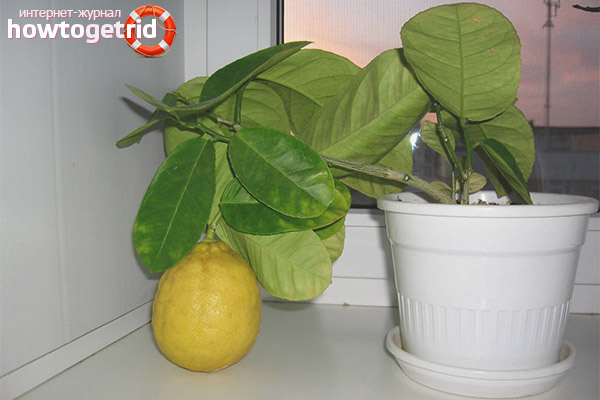
But you shouldn’t regret water for watering lemon either - lack of food doesn’t lead to anything good either. In a tree growing in dry ground, the leaves also begin to turn yellow, curl, fall. The consequences of a shortage of life-giving moisture are the same - small roots die off, and the plant cannot absorb substances necessary for life from the soil. Which leads to a lemon in a stressful state, and slows down the circulation of juices through the plant tissues. As a result, shoots and leaves growing from above have nothing to feed, so one has to drop part of the crown.
Trying to return to life for a long time not watered lemon, you can not start immediately pour the soil. Because an excess of water (this has already been discussed) destroys the roots of the plant no less than the lack of moisture.
Therefore, in this case, resuscitation of the plant should be carried out gradually: splash water on the leaves, adding a little moisture to the soil. Daily amount of water is required to increase. Then everything will be all right - the earth will slowly get disheveled, the amount of moisture will increase, and the lemon will recover.
Soil is exhausted
In the summer, during the warm season, the lemon tries to give as many shoots as possible. In order for them to grow and develop, we need substances that feed the plants. And a flower growing in a tub or a pot has no place to take the necessary minerals, they cannot appear in the soil from nowhere. Here the owner is required from time to time to feed citrus.
Nitrogen-based substances, phosphates, as well as supplements based on potassium salts, must be introduced into the ground. In addition, it is necessary to fertilize the soil with humus and various bait based on iron and zinc. As soon as the lemon will experience a shortage of any of the above elements, it will begin to lose leaves. You can see the lack of these nutrients by the following features:
- The leaves are covered with yellow spots or turn yellow completely.
- The leaves look down, creating the impression of lethargy and dullness.
- Sometimes there is a change in the shape of the foliage.
- It is clearly seen that the leaves and the young shoots dry out.
If the lemon has parted with the foliage due to a micronutrient deficiency, then it is not difficult to return the tree back to its former healthy life. Just enough every month to add nutrients to the soil according to the scheme shown on the packaging. And if the lemon leaves have fallen for some other reason, then you should look at the climate prevailing in the room. Maybe it's in him?
The plant is cold
Already there was a speech that the lemon is not a fan of high temperatures. And for him to overwinter, he needs a low temperature regime. But this does not mean that the plant needs to be carried out on the balcony - on the street it will freeze completely. The most optimal is to put it where it is not warmer plus ten degrees. If it is colder, the lemon will simply throw off the leaves.
But even after seeing that the lemon is frozen, it is not necessary to hastily bring it into a warm room - a sharp change in temperature will affect the exotic room dweller, and he will die.Just need to gradually raise the temperature around the tree - say, put the heaters.
Care should be taken to ensure that there are no drafts in the room. - they also lead to a change in temperature. And it has already been written that temperature drops negatively affect the lemon crown.
Diseases and pests leading to leaf shedding

No matter how the owner properly cares for the lemon tree, it’s all the same - despite the owner’s efforts, it can part with the leaves and flowers. Why is that? And everything happens due to the fact that some disease or lemon settles on the tree, which are occupied by parasites. About diseases and pests and will be discussed further.
Wreckers who want to live in a lemon, a lot. The plant contained in the room is most often plagued by spider mites, common aphids and scale insects.
Pests are of several types, here are the most frequent:
- Aphid. To determine its presence is very simple - the entire inside of the leaf is stuck to the parasite. Which leads to its gradual twisting.
- Spider mite Perhaps the most common pest. Usually on a lemon tree it moves from the flowers standing in the neighborhood.It is seen that the twigs are decorated with curly cobwebs, and the leaves begin to fall sharply from the tree.
- Shchitovka. Its main food is lemon tree sap, the presence of this pest is the presence of small holes on the leaves.
What actions to take when he sees a lemon that has flown around
If the reason was the presence of parasites on the plant or it was infected by some fungus, then in this situation it is preferable to use special medicines designed to get rid of such misfortunes.
Folk methods of pest control
Of course, it is better to treat the diseases afflicting the plant and the attacking parasites in the traditional way - using medications. And if there is no opportunity and desire to spend money on drugs, then there are other popular ways to get rid of pests.
One of them is a soap solution. Pests are very afraid of ordinary soap. It is necessary to make a saturated solution with the addition of soap (it does not matter, household or toilet), and spray them with all the places occupied by parasites.Immediately after the first application, the results will be noticeable - the parasites will remain much smaller, and the lemon will perk up. The procedure, repeated three or four times, will relieve the citrus from parasites for a long time.
Video: why yellow lemon flies around and around

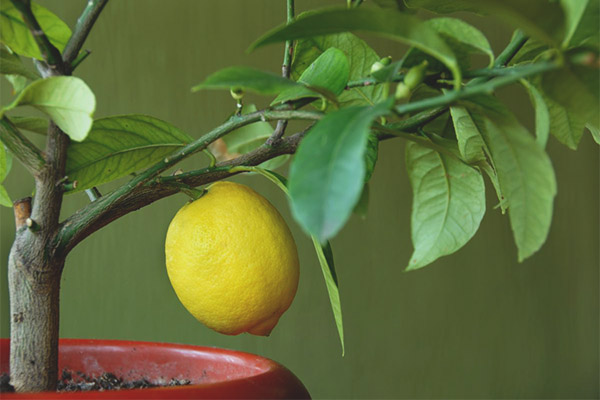

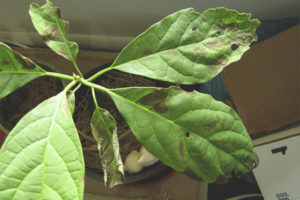
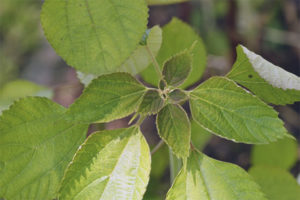
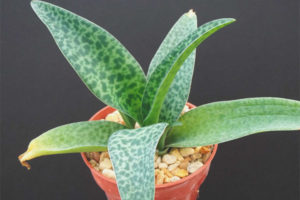
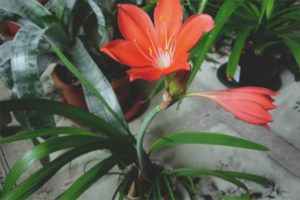
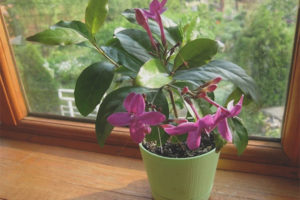
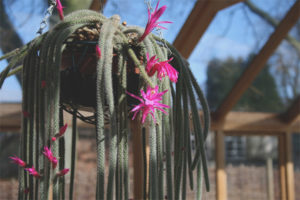
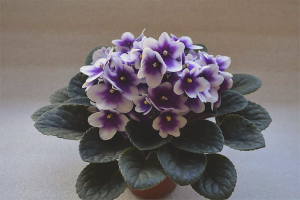
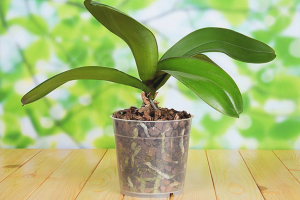
To send